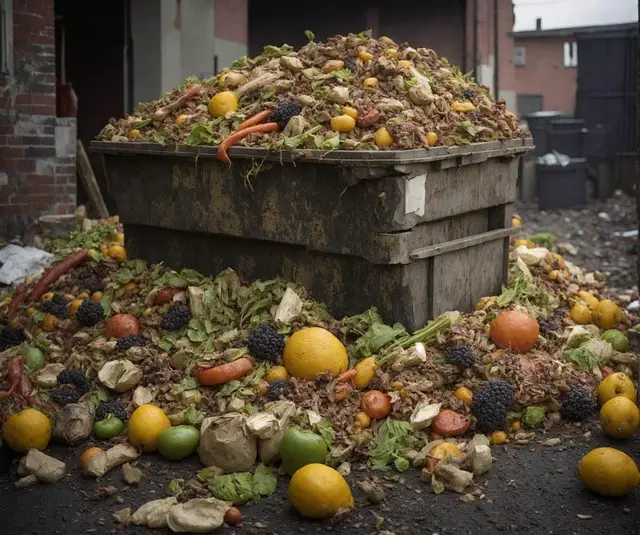Hot mix asphalt (HMA) recycling using ODOT-approved materials in Toledo, Ohio, is a growing trend that reduces environmental impact, extends highway lifespans, and saves costs. Adhering to strict ODOT recycling standards ensures high-quality recycled products, maintaining road safety and durability. This sustainable practice leverages reclaimed asphalt, construction waste, and tire rubber, minimizing landfilling and conserving natural resources. By embracing these eco-friendly methods, Toledo demonstrates its commitment to cost-effective and environmentally friendly highway maintenance while promoting circular infrastructure development.
Hot mix asphalt (HMA) recycling is a sustainable solution gaining traction in highway maintenance. This method not only reduces environmental impact but also provides cost-effective alternatives to traditional HMA production. In Toledo, ODOT-approved recycling materials play a crucial role in ensuring both quality and environmental compliance. By adhering to stringent ODOT recycling standards, recycled materials are proving their value in meeting the challenges of modern highway construction while minimizing waste.
- Understanding Hot Mix Asphalt Recycling: A Sustainable Approach to Highway Maintenance
- ODOT-Approved Recycling Materials in Toledo: Ensuring Quality and Environmental Compliance
- The Role of Recycled Materials in Meeting ODOT Recycling Standards
- Benefits and Considerations for Using Recycled Materials in Highway Construction
Understanding Hot Mix Asphalt Recycling: A Sustainable Approach to Highway Maintenance
Hot mix asphalt (HMA) recycling is a sustainable and cost-effective approach to highway maintenance that has gained significant traction in recent years, with many states adopting odot-approved recycling materials toledo as part of their infrastructure plans. This method involves the reuse of existing asphalt pavement materials, reducing the need for new aggregates and binders while minimizing waste generation. By adhering to ODOT recycling standards, contractors can create high-quality recycled HMA that meets the same performance criteria as virgin material.
The process starts with the removal of old, worn-out asphalt pavement. These materials are then processed at facilities where they’re heated, mixed, and often combined with new aggregates and binders to produce a new batch of hot mix asphalt. This not only reduces the environmental impact associated with traditional pavement construction but also helps extend the life of existing highways, saving time and money in the long run. Using recycling materials for highways is a significant step towards achieving more sustainable infrastructure development and operation.
ODOT-Approved Recycling Materials in Toledo: Ensuring Quality and Environmental Compliance
In Toledo, ensuring that recycling materials meet ODOT-approved standards is paramount for both quality and environmental compliance in highway maintenance. The Ohio Department of Transportation (ODOT) sets rigorous guidelines to guarantee that recycled materials, such as hot mix asphalt, are safe and effective alternatives to virgin aggregates. These standards encompass a range of criteria, including material composition, performance characteristics, and environmental impact, ensuring that the recycled products meet or exceed those of conventional highway materials.
By adhering to ODOT recycling standards, Toledo not only maintains high-quality road surfaces but also contributes to sustainable practices. This commitment to environmental stewardship is reflected in the city’s choice of recycling materials for highways, which are carefully sourced and processed to minimize waste and maximize resource efficiency. The use of ODOT-approved recycling materials ensures that Toledo’s highways remain safe, durable, and environmentally responsible.
The Role of Recycled Materials in Meeting ODOT Recycling Standards
Hot mix asphalt recycling plays a pivotal role in meeting ODOT (Ohio Department of Transportation) recycling standards. By utilizing recycled materials, such as reclaimed asphalt pavement (RAP), construction and demolition waste, and tire rubber, the industry can significantly reduce the environmental impact of highway maintenance and construction. These ODOT-approved recycling materials for Toledo and beyond not only help to conserve natural resources but also minimize landfilling, thereby contributing to a more sustainable future.
The process involves carefully managing and processing these recycled materials to meet specific quality standards set by ODOT. This includes ensuring proper proportioning, mixing, and compaction to create hot mix asphalt that performs as well as conventional mixes while reducing the demand for virgin aggregate and bitumen. By adhering to these stringent odot recycling standards, the industry promotes cost-effective and environmentally responsible practices in highway maintenance and construction projects throughout Ohio.
Benefits and Considerations for Using Recycled Materials in Highway Construction
The use of recycled materials in highway construction offers a myriad of benefits for both the industry and the environment. One of the primary advantages is cost reduction; using reclaimed asphalt and concrete can significantly lower project expenses, making it an economically viable option. Additionally, hot mix asphalt recycling reduces the need for virgin materials, lessening the environmental impact of road construction. This process conserves natural resources, minimizes landfill waste, and lowers energy consumption associated with producing new materials.
When considering odot-approved recycling materials toledo and adhering to ODOT recycling standards, several factors come into play. These include ensuring the quality and integrity of the recycled products to maintain road safety and durability. Proper handling and processing techniques are vital to meet these standards. The process involves careful screening, crushing, and mixing to create new highway-grade materials, ensuring they meet the required specifications. This sustainable approach not only benefits the construction industry but also contributes to a greener future by promoting circularity in infrastructure development.


